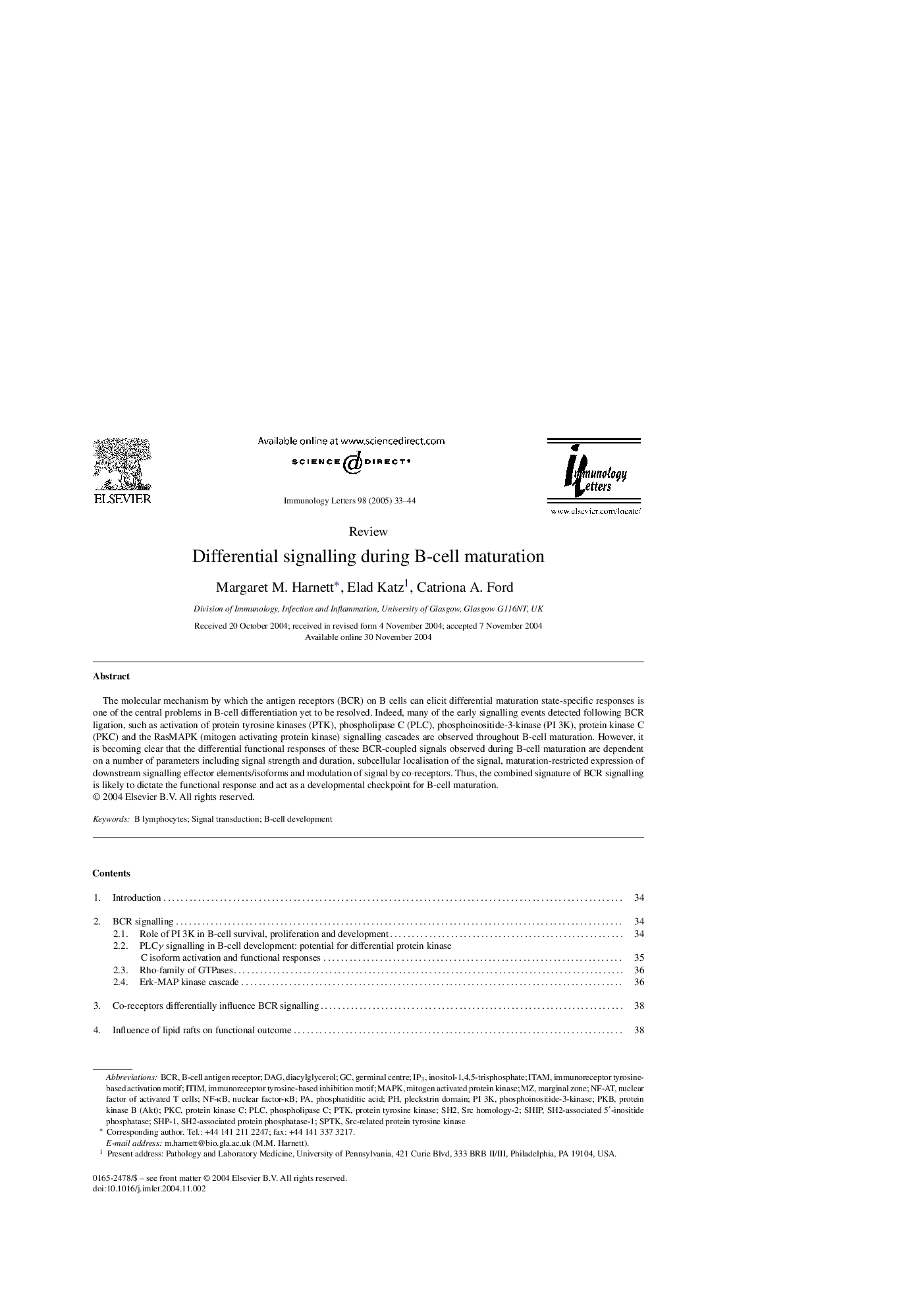| Article ID | Journal | Published Year | Pages | File Type |
|---|---|---|---|---|
| 9266305 | Immunology Letters | 2005 | 12 Pages |
Abstract
The molecular mechanism by which the antigen receptors (BCR) on B cells can elicit differential maturation state-specific responses is one of the central problems in B-cell differentiation yet to be resolved. Indeed, many of the early signalling events detected following BCR ligation, such as activation of protein tyrosine kinases (PTK), phospholipase C (PLC), phosphoinositide-3-kinase (PI 3K), protein kinase C (PKC) and the RasMAPK (mitogen activating protein kinase) signalling cascades are observed throughout B-cell maturation. However, it is becoming clear that the differential functional responses of these BCR-coupled signals observed during B-cell maturation are dependent on a number of parameters including signal strength and duration, subcellular localisation of the signal, maturation-restricted expression of downstream signalling effector elements/isoforms and modulation of signal by co-receptors. Thus, the combined signature of BCR signalling is likely to dictate the functional response and act as a developmental checkpoint for B-cell maturation.
Keywords
SHP-1Src homology-2PI 3KPTKNF-ATITAMSH2NF-κBITIMPKBPKCBCRIP3PLCinositol-1,4,5-trisphosphateMAPKimmunoreceptor tyrosine-based inhibition motifB-cell developmentdiacylglycerolDAGNuclear Factor of Activated T Cellsnuclear factor-κBphospholipase Cphosphoinositide-3-kinaseB lymphocytesgerminal centremarginal zoneimmunoreceptor tyrosine-based activation motifSignal transductionProtein tyrosine kinaseProtein kinase B (AKT)Protein kinase Cmitogen activated protein kinaseSHIPB-cell antigen receptor
Related Topics
Life Sciences
Immunology and Microbiology
Immunology
Authors
Margaret M. Harnett, Elad Katz, Catriona A. Ford,
